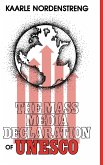In this examination of Greek press, radio and television, authors Zaharopoulos and Paraschos describe media which have been tremendously politicized, partisan, and dominated by foreign programming. As the political and economic face of Greece and Europe changes, the Greek media has been thrown into anarchy. Greece today is at a critical stage of transition from a traditional, developing nation to a more western-oriented, modern society. The media have mirrored Greece's struggle, and as important tools of political, socioeconomic, and cultural power, they have been at the forefront of the national crisis. In this examination of Greek press, radio and television, Zaharopoulos and Paraschos describe media which have been tremendously politicized, partisan, and dominated by foreign programming. As the political and economic face of Greece and Europe changes, the Greek media have been thrown into anarchy. Zaharopoulos and Paraschos trace the development of the media under different political regimes which have shaped its norms and structures. Historically, governments ranging from military juntas to democratically elected ones, have all been reluctant to share the use of the print media, radio and television, although opposition parties have been successful in loosening the now crumbling government monopoly. The traditionally powerful elements of society have benefitted most from radio and television ownership which, the authors say, will ultimately benefit Greek society as a whole. The authors discuss the Greek mass media's transformation from state control to privatization as a foreshadowing model of Eastern European media developments. Mass Media in Greece will be of particular interest to students of international communication and modern Greece.
Hinweis: Dieser Artikel kann nur an eine deutsche Lieferadresse ausgeliefert werden.
Hinweis: Dieser Artikel kann nur an eine deutsche Lieferadresse ausgeliefert werden.








